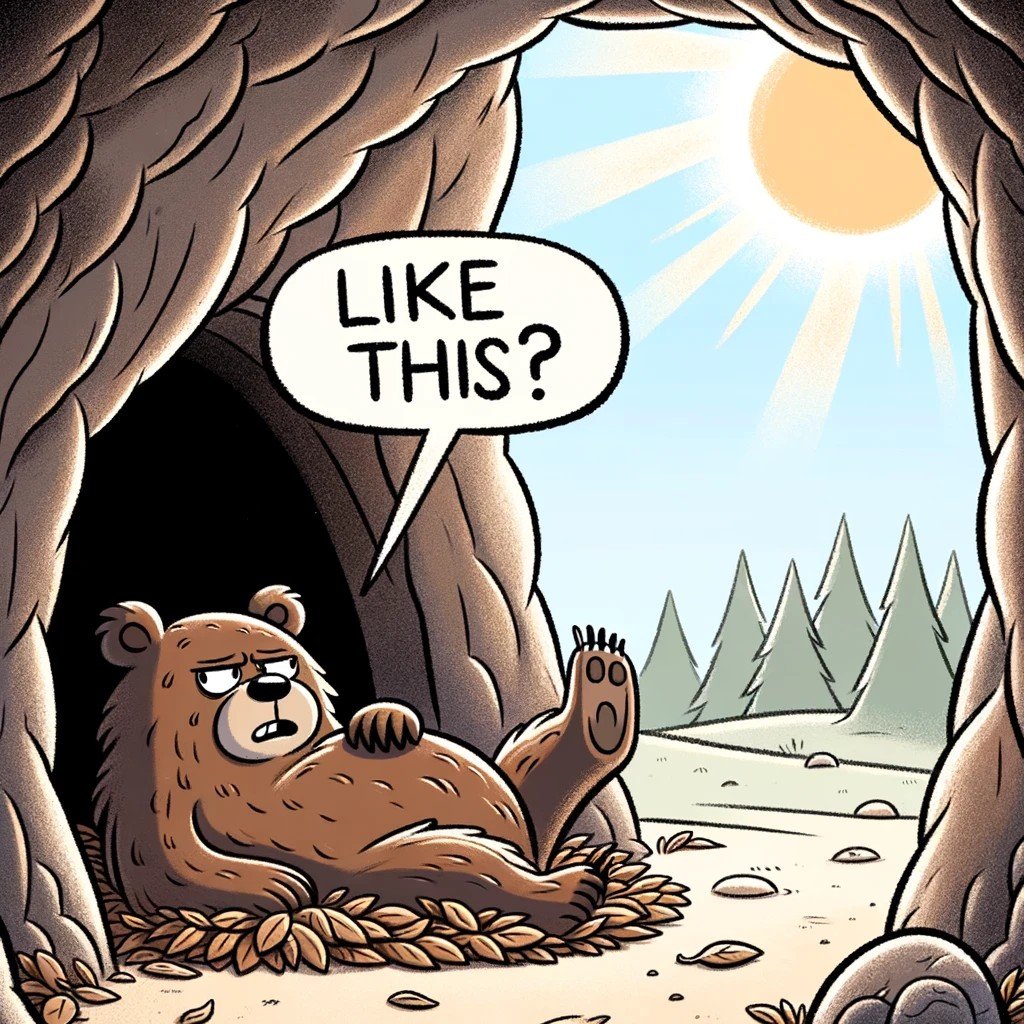Have they tried just leaving one leg out of the cave? Works for me with my blankets.

Is that AI generated? The bear has two pupils.
Yes, it is AI generated.
Why settle for 20/20 vision when you can have 20/20/20/20?
That is amazing. Yes, exactly like that.
Great. So we’re not only killing the polar bears but the grizzly bears as well. Humanity is a plague.
We’ve already killed roughly 40 percent of all animals since the 1970s, with an accelerating rate. Humans are the 6th mass extinction, the last being the asteroid that killed (most of) the dinosaurs 65 million years ago. We are the also the end of the longest stable period of bio diversity in the history of this planet.
I really wish we go extinct before we manage to find an habitable planet we can also realistically colonize
Colonization of a planet is 100% unrealistic. Our societies won’t even work to maintain what we have. Who is going to spend money essentially creating life on a new planet? The rich have it good here. The governments are busy fighting and ignoring the people. People don’t even want to switch to renewable energy.
No chance at all.
Colonization is probably far out of reach. Short of terraforming one of our solar system’s planets or moons (and this is truly our only hope), we’re stuck looking for exoplanets. The nearest star to ours is 4.25 light years away.
Grizzlies are the subspecies unique to North America, closely tied to the Kodiak, and are considerably larger than the Eurasian or Siberian brown bears. The article would be referring to one of those latter two, probably.
Although I imagine the same issue exists for the Grizzlies and Kodiaks of North America.
The article called them grizzlies, so that’s what I went with.
This is depressing.
deleted by creator





